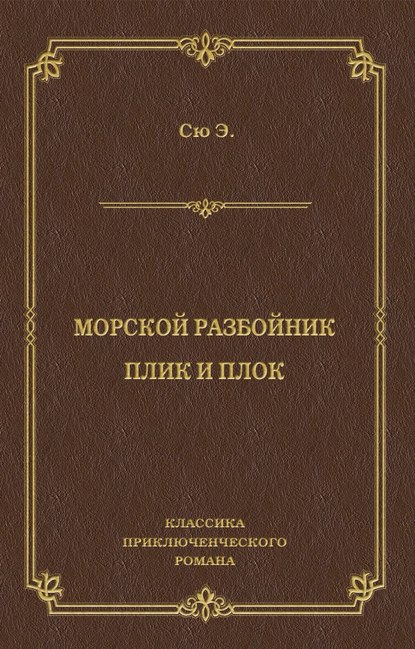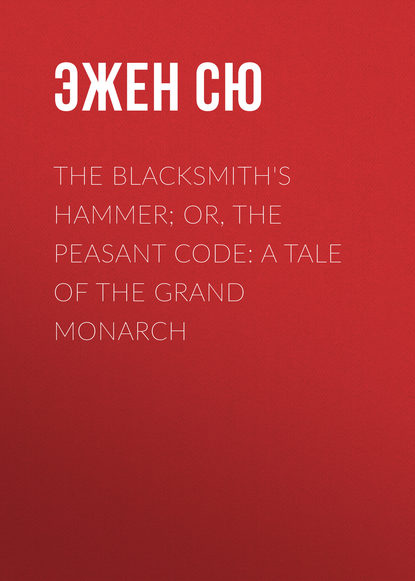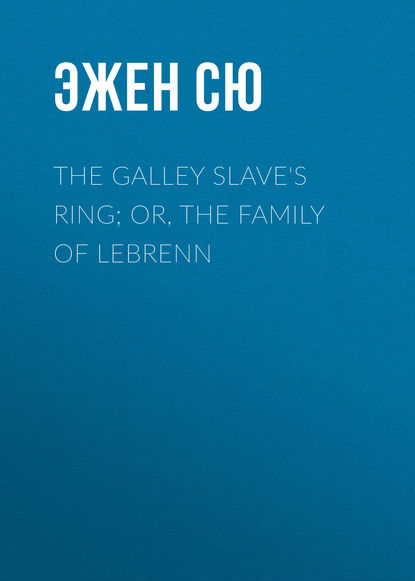
Полная версия
A Romance of the West Indies
"There are crimes that may escape the justice of men, my son, but they never escape the justice of God. I do not know, however, if this woman is as culpable as they say, but still I say, do not speak of her, my son, I implore you," said Father Griffen, whom this interview seemed to affect most painfully.
Suddenly the chevalier assumed a resolute attitude, pulled his hat down over his forehead, caressed his mustache, balanced himself on his toes like a barnyard fowl preparing for combat, and cried with an audacity of which a Gascon alone is capable, "Gentlemen, tell me the day of the month."
"The 13th of July," replied the captain.
"Well, gentlemen," continued our adventurer, "may I lose the name of De Croustillac, may my coat of arms be forever smirched with disgrace, if in one month from this very day, in spite of all the buccaneers, filibusters or cannibals in Martinique or in the world, Blue Beard is not the wife of Polyphème de Croustillac!"
That evening when they went down to the saloon the adventurer was taken aside by Father Griffen; he sought by every possible means to ascertain if the Gascon knew more than he appeared to, concerning the surroundings of Blue Beard. The extraordinary persistence with which Croustillac occupied himself with her and the men about her had aroused the suspicions of the good priest. After speaking at some length on the subject with the chevalier, the priest was almost certain that Croustillac had not spoken other than by presumption and vanity.
"It matters not," said Father Griffen, "I'll not lose sight of this adventurer; he has the appearance of an empty-headed fool, but traitors know how to assume all guises. Alas!" continued he sadly, "this last voyage imposes upon me great obligations toward those who dwell at Devil's Cliff. Meantime, their secret is, so to speak, mine, but I have done what I could; my conscience approves. May they long enjoy the happiness they deserve, of escaping from the snares set for them. Ah! what dangerous enemies kings are, and one often pays dearly for the doubtful honor of being born on the steps of a throne. Alas!" went on the priest with a profound sigh, "poor angelic woman, it rends my heart to hear her thus spoken of, but it would be impolitic to defend her. These rumors are the preservation of the noble creatures in whom I am so deeply interested."
After considering awhile Father Griffen said to himself, "I at first took this adventurer to be a secret emissary from England, but I am doubtless deceived. Nevertheless, I will watch this man. In fact, I will offer him the hospitality of my house; thus his movements will not escape me. In any case, I will warn my friends at Devil's Cliff to redouble their prudence, for, I know not why, the presence of this Gascon disturbs me."
We will here hasten to inform the reader that the suspicions of Father Griffen, so far as Croustillac was concerned, were without foundation. The chevalier was nothing more than the poor devil of an adventurer which we have shown him to be. The excellent opinion he held of himself was the sole cause of his impertinent wager of espousing Blue Beard before the end of the month.
CHAPTER IV
THE PRIEST'S HOUSE
The Unicorn had anchored at Martinique three days. Father Griffen, having some matters requiring his attention before his return to his parish of Macouba, had not as yet quitted Fort St. Pierre.
The Chevalier de Croustillac found himself landed in the colonies with but very little money in his pocket. The captain and passengers had considered the adventurer's declaration that before a month had passed he would be the husband of Blue Beard, as an idle boast. Far from having given up the idea, the chevalier persisted in it more and more since his arrival in Martinique; he had carefully informed himself as to the riches of Blue Beard, and was convinced that, if the life of this strange woman was surrounded with the profoundest mystery, and she the subject of the wildest exaggeration, it was at least true that she was enormously wealthy.
As to her face, age and origin, as no one had on this point as much knowledge as Father Griffen, nothing could be affirmed. She was a stranger in the colony. Her man of business had come in advance to the island in order to purchase a magnificent estate and to build the mansion at Devil's Cliff, situated in the northern and most inaccessible and wildest portion of Martinique. At the end of several months it became known that the new proprietor and his wife had arrived. One or two of the colonists, impelled by their curiosity, had penetrated into the solitude of Devil's Cliff; they were received with a royal hospitality, but they did not see the owners of the place. Six months after this visit, news was received of the death of the first husband, which occurred during a short visit taken by the couple to Terre-Ferme.
At the end of one year of absence and widowhood, Blue Beard returned to Martinique with a second husband. It was said that this latter was killed, accidentally, while taking a walk with his wife; his foot slipped and he fell into one of those bottomless abysses which are so common in the volcanic soil of the Antilles. Such was, at least, the explanation that his wife gave concerning his mysterious death.
No one knew anything positive concerning the third husband of Blue Beard and his death.
These three deaths, so close together, so mysterious, caused strange stories to be circulated regarding this woman, and reached the ears of the Governor of Martinique, who was then Chevalier de Crussol; he started with an escort for Devil's Cliff; arriving at the foot of the thickly-wooded ascent, on the summit of which towered the mansion, he found a mulatto who gave him a letter. After reading this letter, the governor showed great surprise, and ordering his escort to await his return, he followed the slave, alone.
At the expiration of four hours the governor returned with his guide, and immediately retraced his steps to St. Pierre. Some of those who formed his escort remarked that he was very pale and very much agitated. From that moment until the day of his death, which occurred thirteen months to the very day after his visit to Devil's Cliff, no one ever heard him pronounce the name of Blue Beard. The governor made a long confession to Father Griffen, who came to him from Macouba. It was observed that in leaving the penitent, Father Griffen appeared to have received a great shock.
From that time the kind of fatal and mysterious reputation which had attached itself to the name of Blue Beard increased day by day. Superstition mingled with the terror which she inspired, until her name was never mentioned without terror; it was firmly believed that she had assassinated her three husbands, and that she had escaped punishment by law only through the power of her wealth, thus purchasing the support of the different governors who succeeded each other in turn. No one, then, was tempted to trouble Blue Beard with visits to the wild and solitary place in which she dwelt, above all since the cannibal, the buccaneer and the privateer had come, as they said, to be companions or consolers to the widow.
Whether or not these men had ever legally rendered themselves liable for any crime, it was asserted that they pursued with an implacable hatred and vengeance all who attempted to come near Blue Beard. By reason of being repeated and exaggerated, these threats bore their fruit. The islanders care little to go, perhaps at the peril of their lives, to penetrate into the mysteries of Devil's Cliff. It required the desperate audacity of a Gascon in extremity, to attempt to surprise the secret of Blue Beard and undertake to espouse her. Such was possibly the fixed design of the Chevalier de Croustillac; he was not a man to renounce so easily the hope, insane as it was, of marrying a woman worth millions; beautiful or plain, young or old, it mattered little to him.
As a means to success, he counted upon his good carriage, his spirit, his amiability, and his manner, at the same time gallant and proud – for the chevalier had an excellent opinion of himself – but he counted still more on his wit, his cunning, and his courage. In fine, a man alert and determined, who had nothing to lose and feared nothing, who believed implicitly in himself and his star; who could say to himself as did Croustillac, "In risking death during a moment – for death can be but a moment's agony – I may live in luxury and opulence" – such a man can perform miracles above all when he undertakes a project with such a grand object and as stimulating as that proposed by Croustillac.
According to his resolve, Father Griffen, after he had brought to a close the affairs which detained him at St. Pierre, invited the chevalier to accompany him to Macouba, to remain there until the Unicorn should sail again for France. Macouba being distant not more than four or five leagues from Devil's Cliff, the chevalier, who had spent his three crowns and who found himself without resources, accepted the offer of the worthy priest, without further enlightening him as to his resolve concerning Blue Beard; this he would not reveal until the moment arrived to put it into execution.
After taking leave of Captain Daniel, the chevalier and the priest embarked in a small boat. Favored by a good wind from the south, they set sail for Macouba. Croustillac appeared indifferent to the magnificent and novel scenes which were afforded by the coast of Martinique, seen from the water; the tropical vegetation whose verdure, of a tone almost metallic, outlined on a glowing sky, affected him very little.
The adventurer, with his eyes fixed on the scintillating wake which the boat left behind her, seemed to see flashing the living rays of Blue Beard's diamonds; the little green herbs, standing in relief from the submerged meadows which edged the winding shores, pictured to the Gascon the emeralds of the widow; while some drops of water sparkled in the sun in the fall of the oars made him dream of the sacks of pearls which the terrible resident at Devil's Cliff possessed.
Father Griffen was also deeply absorbed; after thinking of his friends at Devil's Cliff, he turned his thoughts, with a mixture of disquietude and joy, to his little flock at home, his garden, his poor and unpretentious church, his house, his favorite horse, his dog, and his two slaves who had always given him the most devoted service. And then – shall we say it? – he thought of certain preserves which he had made some days before his departure, and as to the condition of which he was ignorant.
In three hours our travelers arrived at Macouba. Father Griffen had not long to wait; the canoe was moored in a little bay, not far from the river which watered this section, one of the most fertile of Martinique.
Father Griffen leaned upon the chevalier's arm. After having for a time followed the shore where the high and powerful waves of the Caribbean Sea rolled on, they reached the village of Macouba, composed of some hundred houses built of wood and covered with roses and palms.
The village was built on a semicircular plan which followed the outline of the Bay of Macouba, a little port where many canoes and fishing boats were built. The church was a long wooden edifice from the center of which four beams arose, surmounted by a little belfry in which was hung a bell; the church overlooked the village, and was in turn overshadowed by immense cliffs, covered by rich vegetation, which made an amphitheatre of living green.
The sun was rapidly setting. The priest trod the only street that crossed Macouba, and which led to the church. Some small negroes, absolutely nude, were rolling in the dust; uttering loud cries; they fled at the approach of the priest. A number of creole women, white or of mixed blood, dressed in long robes of Indian and madras cloth, in striking colors, ran to the doors; recognizing Father Griffen, they testified to their surprise and joy; young and old hastened to respectfully kiss his hand, and to say in creole, "Blessed is your return, good Father; you have been missed in Macouba." Numbers of men came out at once and surrounded Father Griffen, with the same tokens of attachment and respect.
While the priest talked with the villagers of the events which had taken place at Macouba during his absence, and in turn gave them news of France, the housewives, fearing that the good father would not find sufficient provision at the parsonage, had retired to select, one a fine fish, another a beautiful pullet; this one the quarter of a fine fat buck, that one some fruits or vegetables, and a number of little negroes were ordered to carry to the parsonage these voluntary tithes.
The priest reached his house, situated on one side, at some distance from the village, overlooking the sea. Nothing could be more simple than this modest wooden house, covered with roses, and of one story. Curtains of clear linen dressed the windows and took the place of blinds, which were a great luxury in the colonies.
A large room, comprising at the same time parlor and dining room, communicated with the kitchen built at the rear; at the left of this principal room were the bedroom of Father Griffen, and two other small rooms opening into the garden and set apart for strangers or the other priests of Martinique who might, at times, ask the hospitality of their brother priest.
A henhouse, a stable for the horse, lodgings for two negroes, and several sheds, completed this establishment, furnished with a rustic simplicity. The garden had been carefully laid out. Four broad paths were divided by many beds bordered by thyme, lavender, wild thyme, hyssop and other fragrant plants. The four principal beds were subdivided into numerous little ones set apart for vegetables or fruits, but surrounded by wide borders of fragrant flowers. Between two little walls of verdure, covered with Arabian jasmine and odorous creepers, could be seen, in the horizon, the sea and the hills of the other islands.
No fresher or more charming spot than this garden, in which the most beautiful flowers mingled with fruits and magnificent vegetables, could be found. Here a bed of melons, of an amber color, was bordered by dwarf pomegranates, shaped like a small box and covered at the same time with purple blossoms and fruit so heavy and so abundant that it touched the earth. A little further on, a branch of Angola wood with its long, green husks, and its blue flowers, was surrounded by a line of white and pink almonds, sweet with perfume; the carrot plant, sorrel, gimgambo and leek, were hidden in a fourfold rank of tuberoses of the richest tints; finally, came a square of pineapples which perfumed the air, having a row of magnificent cacti for a border, with yellow calix and long silver pistils. Behind the house extended an orchard composed of cocoanuts, bananas, guava, tamarind, and orange trees, whose branches were weighted down to the earth with flowers and fruit.
Father Griffen followed the paths of his garden with unspeakable happiness, observing each flower, plant and tree. His two slaves attended him; one was called Monsieur, the other Jean. These two good creatures, weeping with joy at the sight of their master, could not reply to his questions, so much affected were they, and could only say one to the other, with hands raised to heaven, "God be praised – he is here! he is here!"
The chevalier, indifferent to the joy of the natives, followed the priest mechanically; he was consumed with the desire to inquire of his host if, through the woods which rose in an amphitheatre, one could see the road to Devil's Cliff.
After examining his garden, the good priest went out to inspect his horse which he had named Grenadille, and his large English mastiff called Snog; as soon as he opened the stable door Snog threw himself upon his master and bounded around him. He not only jumped upon him but barked with joy, with such evidence of affection that the negro, Monsieur, was obliged to take the dog by his collar and could with difficulty restrain him, while the priest caressed Grenadille, whose glossy coat and well-covered ribs bore testimony to the good care of Monsieur, who had charge of the stable.
After this thorough visit through his little domain, Father Griffen conducted the chevalier into the bedroom which he had intended for him. A bed draped with a mosquito-netting under a linen canopy, a large bureau of mahogany wood, and a table, was the furnishing of this room, which opened upon the garden. Its only ornament was a crucifix suspended from the center of the slightly roughened wainscot.
"You will find here a poor and modest hospitality," said Father Griffen to the chevalier, "but it is offered you with a good heart."
"And I accept it with gratitude, Father," said Croustillac.
At this moment Monsieur came to announce that supper was ready, and Father Griffen led the way to the dining room.
CHAPTER V
THE SURPRISE
A large glass wherein burned a candle of yellow wax, lighted the table; the dishes were placed on a table cloth of coarse but very white linen. There was no silver; the steel knives, and spoons of maple wood, were of great neatness. A bottle of blue glass contained about a pint of canary; in a large pewter pot bubbled the oagou, a fermented beverage made from the grain of sugar cane; a sealed earthen vessel held water, as fresh as if it were iced.
A fine dorado grilled in its scales (a Caribbean dish), a roasted paroquet of the size of a pheasant, two dishes of sea crabs cooked in the shell and served with sauce of the citron juice, and a salad of green peas, had been symmetrically placed on the table by the negro Jean, around a centerpiece composed of a large basket containing a pyramid of fruit, which had at its base a European melon, a watermelon, and at its summit a pineapple; there was a side dish of sliced palm-cabbage dressed with vinegar, and little whitefish preserved in spiced pickle, which would tempt the appetite of the guests or excite their thirst.
"You are treating me with royal magnificence, Father," said the chevalier to the priest. "This island is the 'promised land,' surely."
"With the exception of the canary wine, which was a gift, my son, all this is the product of the garden which I cultivate, or the fishing and hunting of my two slaves, for the offerings of my parish are superfluous, thanks to the foresight of Monsieur and Jean, who were advised of my arrival by a sailor at Fort St. Pierre. Help yourself to this paroquet, my son," said the priest to the chevalier, who appeared to find the fish very much to his taste.
Croustillac hesitated a moment and looked at the priest in an uncertain manner. "I do not know why, but it seems strange to eat a paroquet," said the chevalier.
"Try it, try it," responded the priest, and he placed a wing on his plate. "Is a pheasant's flesh more plump or more golden? It is cooked to a marvel; and then, did you ever smell anything more appetizing?"
"I should say four spices are employed," said the chevalier, inhaling the odor.
"It is claimed that these birds are very fond of the berry of the Indian trees which they find in the forest; these trees have at once the taste of cinnamon, clove and pepper, and the flesh of the game partakes of the scent of this aromatic tree. How this juice is flavored. Add a little of the orange sugar, and then tell me if the Lord has not blessed his creatures in bestowing such gifts upon them?"
"In all my life I have never eaten anything more tender, more delicate or more savory than this," replied the chevalier, with full mouth, and half shutting his eyes in sensual enjoyment.
"Is it not good?" said the good priest, who, knife and fork in hand, looked at his guest with satisfied pride.
The repast ended, Monsieur placed a pot of tobacco and pipes at the side of the bottle of canary, and Father Griffen and Croustillac were then left alone.
After filling a glass of wine and passing it to the chevalier, the priest said to him, "Your health, my son."
"Thanks, father," said the chevalier, lifting his glass. "Drink also to the health of my future bride; it will be a good omen for me."
"How? your future bride?" replied the priest; "what do you mean?"
"I allude to Blue Beard, father."
"Ah – always jesting! Frankly, I believe the men of your province are most inventive, my son," said Father Griffen, smiling mischievously, and emptying his glass in small doses.
"I never spoke more seriously, father. You heard the vow which I made on board the Unicorn?"
"Impossibility nullifies a vow, my son; because you should swear to measure the ocean, would you engage to fulfill this oath?"
"How, Father – is the heart of Blue Beard as bottomless as the ocean?" gayly exclaimed the chevalier.
"An English poet has said of woman, 'Perfidious as the waves,' my son."
"However perfidious women may be, my worthy host," said the chevalier with a self-sufficient air, "we men know how to disarm them, and I shall exercise afresh that power in dealing with Blue Beard."
"You will not attempt anything of the kind, my son; I am easy on that point."
"Allow me to say, father, that you deceive yourself. To-morrow, at daybreak, I shall ask of you a guide to conduct me to Devil's Cliff, and I shall confide the course of this adventure to my Star."
The chevalier spoke with so serious an air that Father Griffen hastily placed upon the table the glass which he was raising to his lips, and regarded the chevalier with as much astonishment as distrust. Until then he had really believed the matter to be only a pleasantry or idle boast. "Are you sincere in this resolve? This is absolute madness, but – "
"Excuse me, Father, for interrupting you," said the chevalier, "but you see before you the younger son of my family, who has tempted every fortune, wasted all his resources, and with whom nothing has succeeded. Blue Beard is rich, very rich. I have everything to gain, nothing to lose."
"Nothing to lose?"
"Life, perhaps, you will say. I make a good bargain; and then, barbarous though this country may be, helpless as justice may prove, I do not think that Blue Beard will dare treat me, on my arrival, as she treated her three husbands; if so, you will know that I have fallen a victim; you will demand an account of my death. I risk nothing more than seeing my homage rejected. Ah! well, if such be the case, if she repulses me, I shall continue to delight Captain Daniel during his trips by swallowing lighted candles and balancing bottles on the end of my nose. Certainly such an occupation is honorable and amusing, but I prefer another life. So, then, no matter what you say, Father, I am resolved to attempt the adventure and to go to Devil's Cliff. I cannot tell you what secret presentiment tells me I shall succeed, that I am upon the eve of seeing my destiny fulfill itself in a most wonderful manner. The future seems tinted with rose and gold; I dream only of magnificent palaces, wealth, and beauty; it seems to me (excuse the pagan comparison) that Love and Fortune have come and taken me by the hands and are saying to me, 'Polyphème de Croustillac, happiness awaits thee.' You will say, perhaps, Father," continued the chevalier, throwing a mocking glance at his faded coat, "that I am poorly dressed to present myself in this beautiful and brave company of fortune and happiness; but Blue Beard, who must be intelligent, will comprehend at once that under this outside, the heart of an Amadis, the spirit of a Gascon, and the courage of a Cæsar dwells."
After a moment's silence the priest, instead of smiling at the pleasantries of the chevalier, said to him in a tone that was most solemn, "Is your resolve finally taken?"
"Unwaveringly and absolutely taken, Father."
"Hear me then; I heard the confessions of the Chevalier de Crussol, the former governor of this island; he who, when the third husband of this woman disappeared, went to Devil's Cliff."
"Well, father?"
"While I must respect the secrets of the confessional, I can, I must, tell you that if you persist in your insane project, you expose yourself to great and unavoidable peril. Without doubt, if you lose your life, your death will not remain unpunished; but there will be no means of preventing the fatal end upon which you would rush. Who obliges you to go to Devil's Cliff? The resident of that place wishes to live in solitude; the barriers of that abode are such that you cannot break them down without violence; for in every country, and above all in this one, he who trespasses upon the property of another exposes himself to grave danger – danger the greater that all idea of a union with this widow is impossible, even if you were of a princely house."












